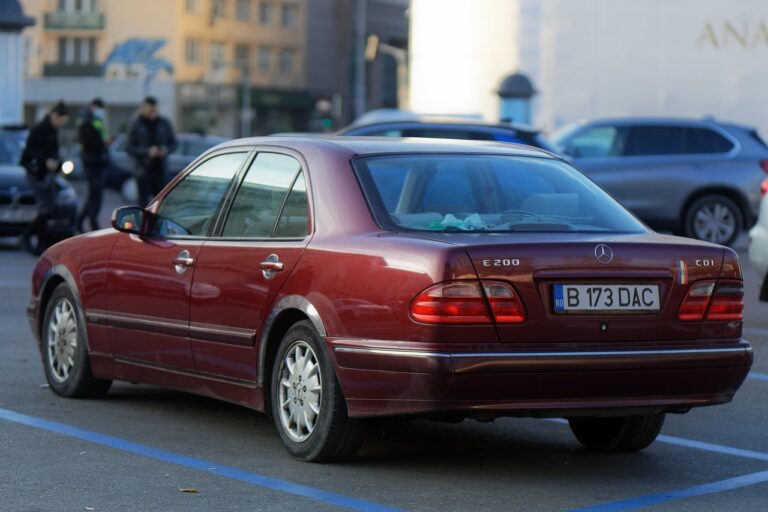
Running a small business in the United States often involves some level of transportation, whether it’s delivering products, making service calls, or moving equipment. If your business owns or uses vehicles for work-related purposes, having commercial vehicle insurance is not just important — it’s legally necessary. In this article, we’ll explore everything you need to know about commercial vehicle insurance for small businesses in the USA, including coverage options, benefits, costs, and frequently asked questions.
What is Commercial Vehicle Insurance?
Commercial vehicle insurance is a policy designed to protect businesses from financial losses resulting from accidents, theft, or damage involving company-owned or used vehicles. This is different from personal auto insurance, which does not cover vehicles used for business purposes.
Why Do Small Businesses Need Commercial Auto Insurance?
- Legal Compliance: Most U.S. states require commercial auto insurance if vehicles are used for business.
- Financial Protection: Covers property damage, medical bills, lawsuits, and more.
- Employee Safety: Ensures drivers and employees are protected in case of accidents.
- Business Continuity: Avoid downtime and losses with timely repairs and coverage.
Who Needs Commercial Vehicle Insurance?
You may need commercial vehicle insurance if:
- You own or lease vehicles under your business name.
- You or your employees use personal vehicles for business.
- Your vehicles are equipped with commercial equipment.
- You transport goods, tools, or people for business.
Industries that commonly require it:
- Construction and contracting
- Landscaping
- Delivery and courier services
- Food trucks and catering
- Real estate and home services
What Does Commercial Vehicle Insurance Cover?
Most policies offer the following coverage:
1. Liability Coverage
- Bodily Injury: Covers injuries to other people in an accident.
- Property Damage: Pays for damage to others’ property.
2. Collision Coverage
- Pays for damage to your vehicle after an accident.
3. Comprehensive Coverage
- Covers non-collision events: theft, fire, vandalism, natural disasters.
4. Uninsured/Underinsured Motorist Coverage
- Protects against drivers who have little or no insurance.
5. Medical Payments (MedPay) or Personal Injury Protection (PIP)
- Covers medical expenses for you and your passengers.
6. Hired and Non-Owned Auto Insurance (HNOA)
- Covers vehicles you don’t own but use for business (e.g., rentals or employee-owned cars).
Optional Add-ons for Small Businesses
- Roadside Assistance
- Rental Reimbursement
- Cargo Insurance
- Trailer Interchange Coverage
These can be customized based on your specific business needs.
How Much Does Commercial Auto Insurance Cost?
The cost of commercial vehicle insurance in the USA varies based on:
- Type of Vehicle: Vans, trucks, cars, etc.
- Industry and Usage: High-risk industries pay more.
- Driving Records: Of employees and owners.
- Location: Premiums vary by state.
- Coverage Limits: Higher limits mean higher costs.
Average Cost:
- $1,200 to $2,500 per year per vehicle for small businesses.
How to Choose the Right Policy
- Assess Business Needs: How many vehicles? How often are they used?
- Compare Quotes: Shop around for at least 3 quotes.
- Check Carrier Ratings: Choose financially stable and well-reviewed companies.
- Review Policy Limits: Ensure they match your risk level.
- Bundle Policies: Consider business owner’s policy (BOP) bundling.
Top Commercial Vehicle Insurance Providers in the USA
1. Progressive Commercial
- Offers customized plans
- Real-time claims tracking
2. GEICO Commercial
- Affordable for small fleets
- Strong customer support
3. State Farm
- Agent-based support
- Great for local businesses
4. The Hartford
- Tailored for small business owners
- Fleet and risk management tools
5. Nationwide
- Good for growing businesses
- Offers usage-based plans
FAQs
Q1: Is commercial vehicle insurance mandatory in the USA?
Yes. Most states require it if you use vehicles for business purposes.
Q2: Can I use my personal auto insurance for business?
No. Personal auto insurance usually excludes business use.
Q3: What if my employees drive their own cars for work?
You need Hired and Non-Owned Auto Insurance (HNOA) to cover this.
Q4: Can I write off commercial vehicle insurance on taxes?
Yes. It’s typically a tax-deductible business expense.
Q5: How can I lower my premium?
- Maintain clean driving records
- Install GPS tracking or dash cams
- Pay annually instead of monthly
Summary
For small businesses in the USA, commercial vehicle insurance is a vital layer of protection. It offers legal compliance, liability coverage, financial security, and peace of mind when your business vehicles are on the road. From single delivery vans to an entire fleet, customizing your policy to fit your business needs ensures maximum protection.
Conclusion
If your small business uses any type of vehicle for work, having the right commercial vehicle insurance is essential. It not only meets legal requirements but also protects your livelihood from unexpected losses. By understanding the types of coverage, comparing providers, and choosing the right limits, you can secure comprehensive protection without overpaying. Don’t wait for an accident to discover you weren’t covered—get your commercial vehicle insured today.





